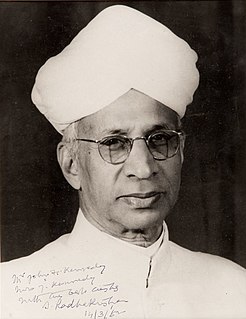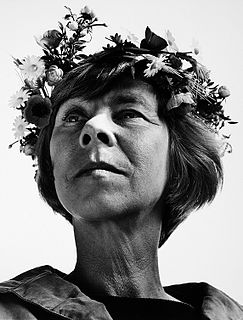A Quote by Peter Adamson
This is in a way the most important thing about soul is that it's a kind of principle which mediates between the universal intellect and the material world.
Related Quotes
Who you really are, is an immaterial soul and the body is an external thing that's sort of an encrustation your soul. So this has important implications for Plotinus' ethics, because his ethics are basically all about encouraging us to turn away from the body and turn towards these higher principles, so universal soul, universal intellect and ultimately the One.
People often talk about Plotinus' system. The reason they do this is that Plotinus postulated a kind of series or chain of principles, so at the top there's what he called the One. Below the One is what he called Intellect. Below Intellect is Soul, and the effect of the soul is the physical world that we actually live in.
The word Atman (Soul) means the "breath of life". Atman is the principle of man's life, the Soul that pervades his being, his breath, his intellect and transcends them. Atman is what remains when everything that is not the self is eliminated. It is the unborn and immortal element in man, which is not to be confused with body, mind or intellect.
Agnosticism, in fact, is not a creed, but a method, the essence of which lies in the rigorous application of a single principle. ... Positively the principle may be expressed: In matters of the intellect, follow your reason as far as it will take you, without regard to any other consideration. And negatively: In matters of the intellect, do not pretend that conclusions are certain which are not demonstrated or demonstrable.
To be prosperous is not to be superior, and should form no barrier between men. Wealth out not to secure the prosperous the slightest consideration. The only distinctions which should be recognized are those of the soul, of strong principle, of incorruptible integrity, of usefulness, of cultivated intellect, of fidelity in seeking the truth.
For creation is not a change, but that dependence of the created existence on the principle from which it is instituted, and thus is of the genus of relation; whence nothing prohibits it
being in the created as in the subject. Creation is thus said to be a kind of change, according to the way of understanding, insofar as our intellect accepts one and the same thing as not
existing before and afterwards existing.
What the soul is doing is kind of walking through the forms, and so our experience of thinking isn't normally this kind of pure intuitive insight that intellect gets, and that intellect must get right, because it's always identical to its objects, it's always the same as the forms that it's thinking about.
I agree that science is the best way of understanding the natural world, and therefore that we have reason to believe what the best science tells us about the objects in that world and the relations between them. But this does not mean that the natural world is the only thing we can have true beliefs about. The status of material objects as things that are "real" is a matter of their having physical properties, such as weight, solidity, and spatio-temporal location. In order to be real, such things need not have, in addition to these properties, some further kind of metaphysical existence.
In Savasana or in meditation, the light of the eyes is drawn towards the lotus of the heart, so that the seat of the intelligence of the head is brought into contact with the seat of the intelligence of the heart, which is called the mind. Thus one passes from the individualistic state of consciousness to the universal state of consciousness. It is the merging of the intellect of the brain with the intellect of the soul.
There's a stronger and more kind of controversial element of Plotinus' view of matter, which is that he actually identifies it with evil, or at least the principle of evil, and the reason for this is that he thinks that the the One, the highest principle, can also be thought of as the Good, and that's kind of surprising like, because he has this negative theology which doesn't allow us to say anything about the One. But he believes that it can be seen as the principle of goodness as well as unity, and that if you think about it, goodness and unity sort of go along with each other.
I love borders. August is the border between summer and autumn; it is the most beautiful month I know. Twilight is the border between day and night, and the shore is the border between sea and land. The border is longing: when both have fallen in love but still haven't said anything. The border is to be on the way. It is the way that is the most important thing.
The region belonging to the pure intellect is straitened: the imagination labours to extend its territories, to give it room. She sweeps across the boarders, searching out new lands into which she may guide her plodding brother. The imagination is the light which redeems from the darkness for the eyes of the understanding. Novalis says, 'The imagination is the stuff of the intellect' -affords, that is, the material upon which the intellect works.






























